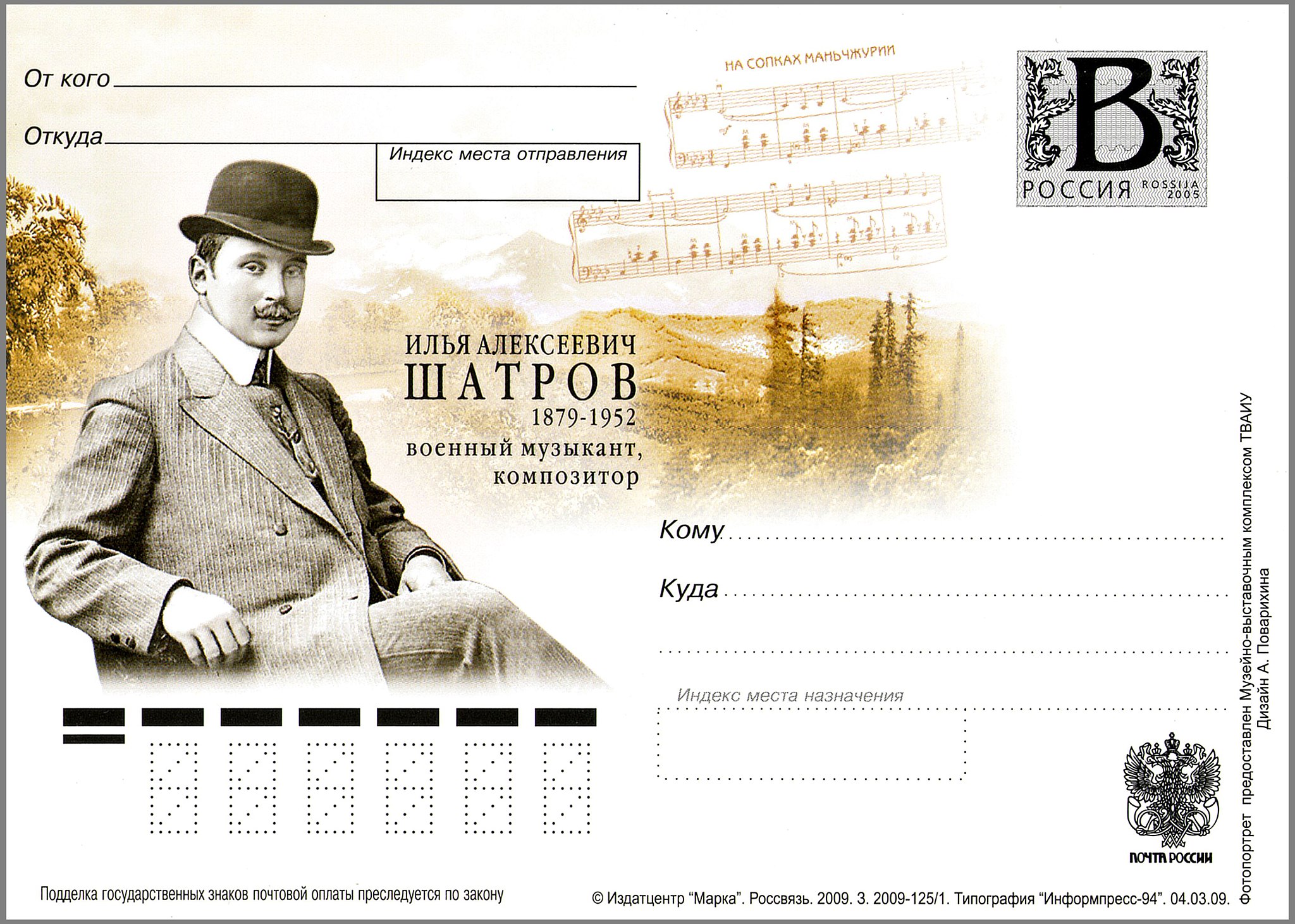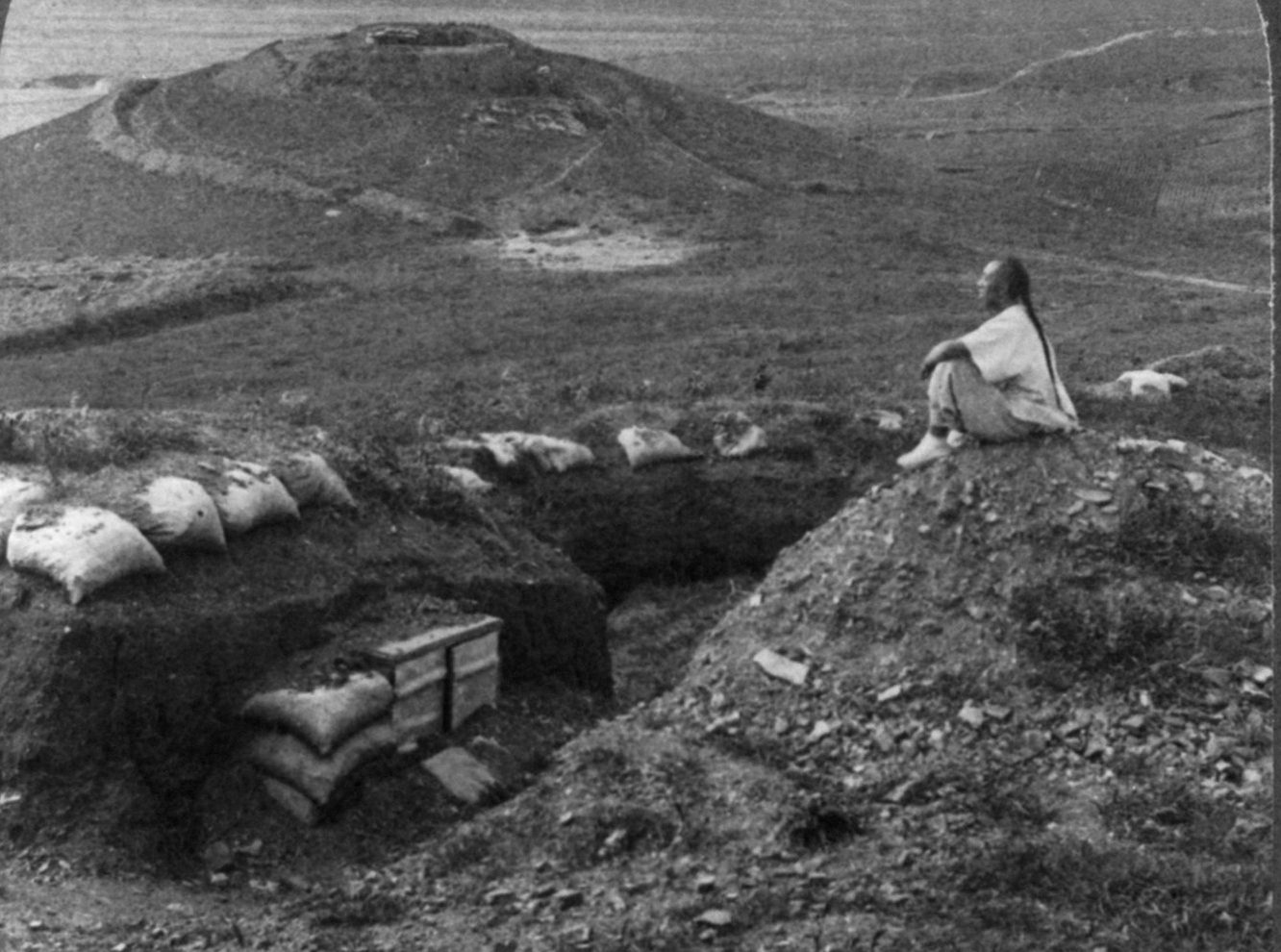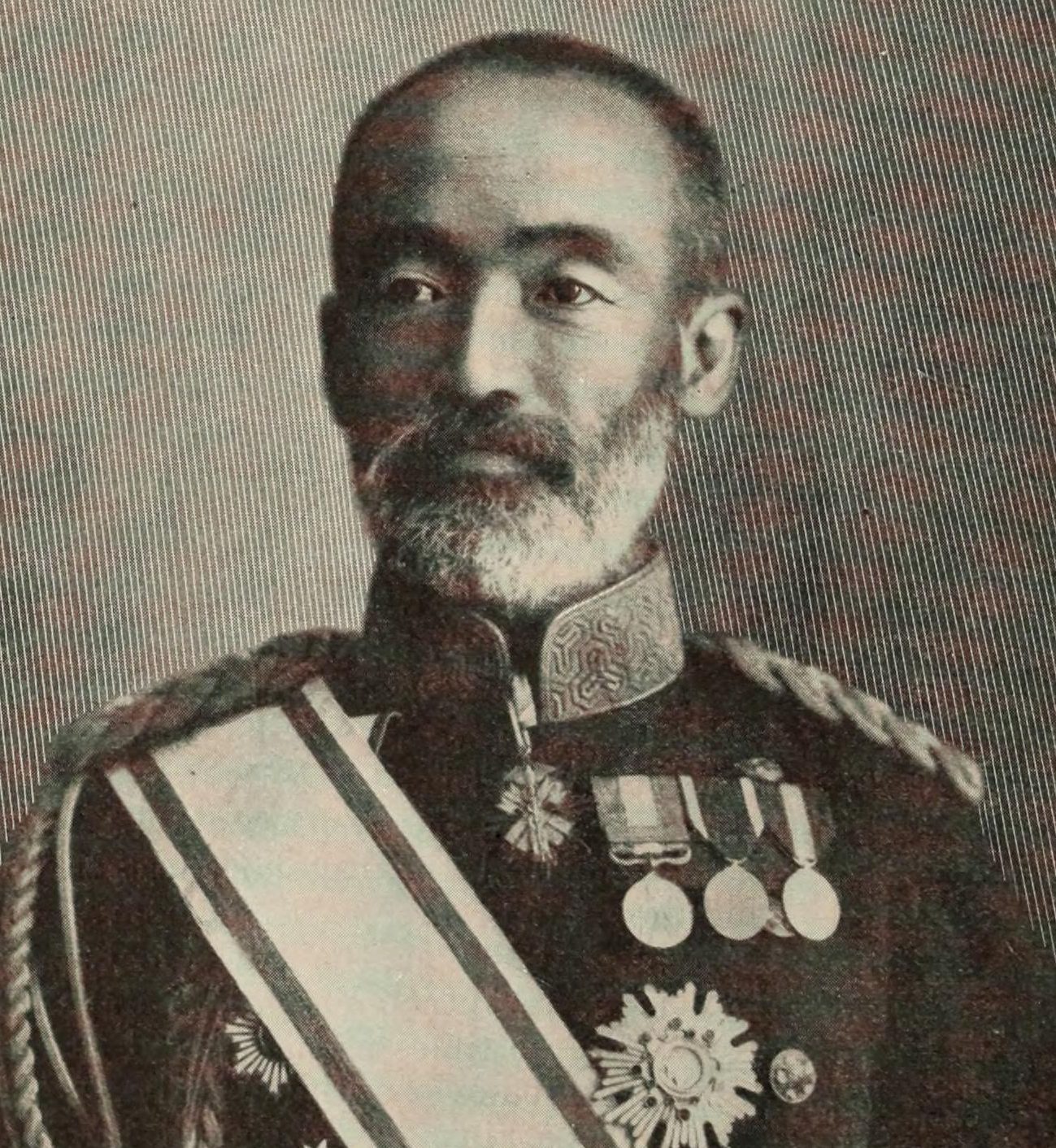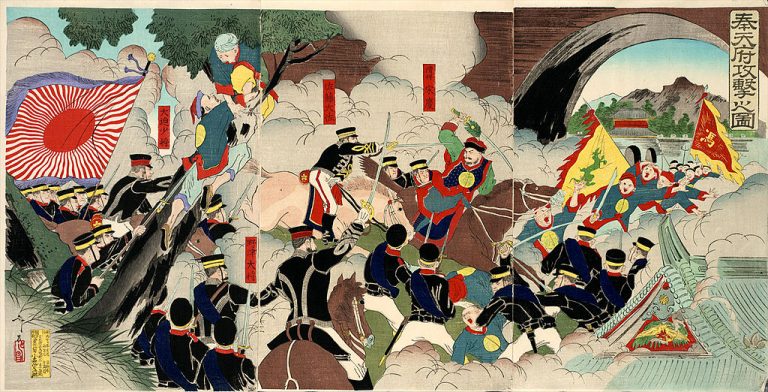It was a frosty March morning in the northern hills at Mukden (奉天, now known as Shenyang), Manchuria, 1905. On this cold day, the Mokshansky Regiment (Мокшанский Полк) was marching towards the battlefield. The Russian Empire had been at war with the Empire of Japan for over a year by now. Both sides suffered casualties, both were tired, and it seemed, at least to the Japanese, the time for a decisive battle had arrived.
Battle of Mukden inspired ‘On the Hills of Manchuria’
Major Ilya Alekseevich Shatrov (Илья Алексеевич Шатров), the bandmaster of the regimental orchestra, was marching along with the infantry. While the infantry soldiers were fighting, the orchestra’s tasks were mainly supportive, such as picking up the wounded and playing battle songs, known as Marches. As the fight raged on, Shatrov lost his fellow musicians one after another.
It was a bloody battle won by the Japanese, but both sides suffered heavily – 88,000 Russian soldiers and 78,000 Japanese soldiers were either killed or wounded over the 20-day assault. Official records state that the Russians managed to retreat from the field, while the Japanese, too exhausted to pursue, held ground, and waited for reinforcement.
Known as the ‘Battle of Mukden,’ it was the last and largest land-battle between the two Empires, and is considered a pivotal moment in Russian history. This loss, along with the subsequent sea-battle that was lost, shook the people’s confidence in Tsar Nicholas II and led to his abdication in 1917. This power vacuum paved the way for the Bolshovik’s usurpation of power in October of the same year.

Upon returning from this harsh battle, all seven members of the surviving regimental band received the highest military honor – The Cross of St George, originally established in 1807 by Tsar Alexander I to reward “undaunted courage.” Shatrov received an additional award: the Order of St Stanislaus with Sword.
The music and lyrics of ‘On the Hills of Manchuria’
One year after returning from Manchuria, Shatrov composed and wrote his classic Waltz, “The Mokshansky Regiment on the Hills of Manchuria” (Мокшанский Полк На сопках Маньчжурии), dedicated to the memory of the fallen soldiers. The name was later shortened to “On the Hills of Manchuria,” allegedly because the longer name could not fit into the face of a gramophone record.
‘It is about this battle and our fallen companions, The Waltz of Manchuria is playing in our hearts.’
The Waltz has been popular in Russia and certain Slavic nations for over 115 years. Several versions of lyrics were written for this Waltz, but most of them were Soviet-era propaganda, themed around curses, hate, and revenge.
In recent years, a renaissance to restore traditional culture gained momentum in Russia. This includes restoring historical facts in literature and the art. Gennady Venediktov (Геннадий Венедиктов), a talented Russian poet and writer, wrote a version of lyrics in 2017, aiming to mirror as much as possible the actual battle conditions, and to remain truthful to the spirit of why Shatrov wrote the Waltz. Instead of hatred, Venediktov captures the pride of Russian soldiers, their grace in the face of death, their longing for peace, and their faith in the Divine.

Through this song, we are offered a rare peek into the Russian Psyche, something usually hidden in their traditionally reserved culture. Or perhaps, like a Matryoshka doll, we might even find a piece of our forgotten memory hiding inside, waiting for the opportunity to smile at us.
How did band members earn Medals of Courage?
One might wonder, how an orchestra could demonstrate “undaunted courage” on the battlefield?
According to official records, after several days of fighting, the Russian army was surrounded by the Japanese. For 11 days they were trapped-in, but continued fighting. Eventually, they ran out of ammunition and were faced with the decision of whether or not to surrender.
The Mokshansky Regiment was given their task: Commander Colonel Pavel Pobyvanets ordered, “The banner and the orchestra, Up and Forward! (Вверхъ и впередъ),” directing the banner and the orchestra to charge forward in the assault.
As the band conductor, Shatrov lined up his musicians – drums, violins, and horns – in front of the banner, playing Russian Battle Marches, and marched into Japanese gunfire. Naturally, he was in front of all his men, and could not see when his fellow violinist was shot and fell, but he could hear that the violin was silenced. One by one, the instruments turned silent, and only a few remained playing. Though fatigued, Russian soldiers were rallied by their Orchestra’s fearlessness and courage. They charged into close-quarter combat and fought valiantly with their bayonets.
The Mokshansky Regiment eventually broke through the encirclement and created a breach for the main army to retreat. It was a hard-fought triumph in a heartbreaking battle, and only 700 out of 4,000 soldiers in the Mokshansky Regiment survived this charge. For the musicians, 7 out of 61 survived.

The Japanese suffered a greater loss despite their victory
Even though the Japanese had superior firepower and won the Battle of Mukden, more Japanese soldiers died there than Russian soldiers. 16,000 Japanese soldiers were killed, compared to 9,000 Russian soldiers.
This may be largely due to the compassionate nature of the Japanese Third Army’s commanding general, Nogi Maresuke, who took part in the Battle of Mukden at the last moment.
From previous records, we know that Maresuke’s instinct was to preserve life, a rare trait in the military profession. The general displayed integrity and compassion in 1896, when he became governor of Taiwan. His first executive order was to prohibit the Japanese military from setting fire to local Taiwanese’ houses. When his mother died of Malaria in Taiwan, it prompted him to take measures to improve the healthcare infrastructure there.
British historian Richard Storry, in his book A Story of Modern Japan, wrote that during the war, General Nogi commanded his men with the traditional Samurai codes of honor and “…the conduct of the Japanese during the Russo-Japanese War towards both prisoners and Chinese civilians won the respect, and indeed admiration, of the world.”
In this instance, the Japanese Army treated the Russian Prisoners-of-War well, providing them with medical care, food, and supplies; thus enabling many of them to recover from their injuries, despite the winter temperatures.
Perhaps it was a stroke of luck for the Russians, or perhaps General Nogi’s last minute involvement in this battle was a Divine blessing to the Russian soldiers. His presence could also explain some other peculiar observations at this battle, such as the ‘slow’ pursuit by the ‘exhausted’ Japanese. Perhaps they were ‘slow’ because they were busy tending to the injured?
In modern Tokyo, you can find General Nogi Maresuke’s Shinto Shrine in Akasaka, right beside Nogi Subway Station.
Success
You are now signed up for our newsletter
Success
Check your email to complete sign up












